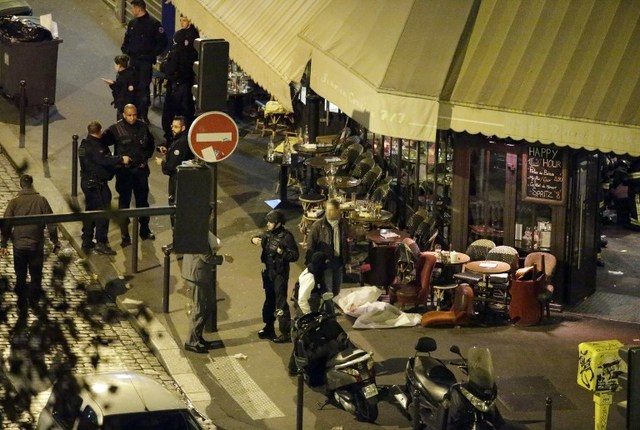SUMMARY
This is AI generated summarization, which may have errors. For context, always refer to the full article.

PARIS, France – France‘s fragile economic recovery is under threat after the Paris attacks, economists said Sunday, November 16, with tourism and consumer spending likely to come under siege.
“We’ve been observing a general climate of lethargy since Saturday,” said Philippe Waechter, head of economic research at Natixis bank.
“There is risk that this generates a wait-and-see attitude, and uncertainty. Uncertainty is never a good thing for the economy.”
It’s a cruel irony that only hours before the attacks the French government was celebrating the best economic news in months: that France had finally returned to growth in the third quarter.
France had “exited the period of extremely weak growth that had lasted too long”, Finance MinisterMichel Sapin said about the 0.3 percent GDP rise in the quarter, predicting “a new phase” for the French economy.
But that was before the attacks.
Fears for tourism
Now the fear is that France‘s money-spinning tourism sector will be the first to feel the pain.
“We’re worried about the clients who usually come here for the end-of-year festivities,” said Evelyne Maes, president of the hotel and restaurant employers’ association.
Paris is the world’s top tourist destination, and tourism accounts for nearly eight percent of France‘s gross domestic product, with just under 84 million visitors last year.
“The attacks will probably have an impact on hotels and restaurants,” said Agnès Benassy-Queré, a researcher at the Paris School of Economics.
But she added that “France is more than Paris. And I don’t see any impact going beyond a few weeks.”
Different from Charlie attacks
It is true that the French economy actually rebounded in the wake of the jihadist attacks in January that targeted satirical magazine Charlie Hebdo and a Jewish supermarket.
But after the second major attack in France inside a year, economists warned that consumer confidence could be sapped by the government’s apparent inability to stop them, weighing on household spending.
“Uncertainty pushes consumers to save, and not to spend,” said Waechter at Natixis.
The same holds true for corporate investment, but to a lesser extent, economists said.
“There is a risk of wait-and-see, of investments being put on hold. But it’s a smaller risk,” said Denis Ferrand, head of research at the COE-Rexecode institute.
Over the longer term, any lingering climate of uncertainty could also make France less attractive to highly-skilled young graduates planning to work here.
“If you live in a society that closes itself off, where everybody fears everybody else, that has got to have an impact,” said Thierry Mayer, who teaches at the Sciences-Po university.
“It’s hard to quantify, but we have to bear that in mind,” he said.
Psychosis or rebound?
But economists freely admitted that an economic downturn after the attacks was no foregone conclusion.
“It’s too early to say,” said Ferrand. “All will depend on the collective reaction.”
Some economists, including Nobel prize winner Gary Becker, have been researching the economic impact of attacks in the wake of the September 11, 2001 assault in New York and have identified two scenarios: a national rebound or, on the contrary, a national psychosis.
“In the United States the September 11 attacks did not translate into weaker activity because Americans became more united,” Waechter said. “We could hope for the same thing to happen in France.”
The Paris stock market, meanwhile, was unlikely to show any strong reaction to the attacks when trading opens Monday, Denis Ferrand said.
“Investors’ worries are more linked to the Chinese economic slowdown than to the attacks,” he said. – Valentin Bontemps, AFP/Rappler.com
Add a comment
How does this make you feel?
There are no comments yet. Add your comment to start the conversation.